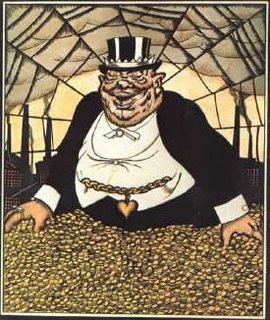
When a defense of a socialist perspective is mounted against the Liberalblogosphere suddenly we are partisan. Such is the accusation going around about the current Minimum Wage debate. I have been accused of being an NDP partisan, as have others. Not once but on many ocassions in this debate. Such as this example which simply dismisses me outright;
"Other bloggers like Plawiuk are just spouting partisan rhetoric"
Of course much of the Cherniak debate also centred around the partisanship of those who confronted his right wing ideas about minimum wages. Which he is quickly backtracking on. Like most hardcore Liberals, not liberals or progressives but the party hacks, mistake their own partisanship for the Party with the passion of other bloggers who speak out.
Most of the debate has not focused specifically on the NDP motion in the Ontario Legislature, or its plan to implement a $10 an hour increase. In fact very few references were made by even hardcore Dippers, to the NDP motion. Rather the criticism leveled at Cherniak and his Liberal Party apologists is that they fail to understand the economics of poverty.
A genralized discussion, not a partisan one unless you use the broader definition which is socialist political economics versus capitalist apologetics. Which is what Cherniak engages in, apolgetics for capitalism.
The reality is that the Liberal Party Bloggers think they speak for liberals, progressives, etc. When in reality they are just a kinder gentler form of capitalism than their Tory counterparts. And some would even contest that. They pride themselves on a leader who owned a Steamship line that fought unionization, ran itself under flags of convinance, etc. A leader who slashed funding to provinces using the same neo-con excuses and formula that Klein and Harris did in their provinces.
Of course there are differences between the two parties of big business in Canada, the Liberals and Tories, but the fact is that they represent capitalism and its interests not the workers interests, not the interests of the majority of Canadians.
And that is far from being partisan, thats just the facts ma'am. Because I support the NDP I am accused of somehow speaking for them.
I also support the Communist Party because they successfully challenged the undemocratic attempt to eliminate third parties, to steal their funds, and declare them non existant under the elections act. That was the Liberal Party that did that.
To dismiss arguments you are not willing to challenge, by calling your opponents partisan, is politically dishonest and when Cherniak does it; disingenous.The whole point of Cherniaks politics, including in the case of the minimum wage debate, is partisan attack and defense. He hates the NDP he loathes it, he fears it, it takes progressives away from his party of the State.
He has made his pathological hatred of the NDP known in a variety of blog postings, including in his salacious and sleazy campaign last fall against NDP candidate DiNovo.
Cherniak is proud to be identified as a leading Liberal Party Hack, as he posts referential quotes to this effect on his blog.
But this debate is not about the NDP or Liberals, as parties, it is not about liberals, or progressives either, because that community is broader than Liberal Party hacks, it is about Cherniak, whose politics are right wing, just a little less so than the Blogging Tories, but right wing none the less.
Liberal Party bloggers are not automatically progressive, heck they may not even be liberal. And that was my original point about the Liberalblogs dominating the PB aggregator, and the distasteful self importance attributed to Liberalblogs by Cherniak and his gang who believe that the PB is theirs. The PB is a global community, composed of many different self proclaimed progressives. That does not mean they are Left Wing for that we have the Vast Left Wing Conspiracy aggregator.
Liberal Party Hacks who blog are partisan. Conservative Party hacks who blog are partisan. There are very few partisan Dippers. Heck there are more partisan Green bloggers than partisan Dippers.
I of course am a political blogger, if I am partisan, it is definetly not to a party but to an anarchist socialist ideology, which means I have a broader perspective of politics not limited to party politics. Unlike those who accuse me of being an NDP partisan.
See:
Minimum Wage
Jason Cherniak
Find blog posts, photos, events and more off-site about:
Ontario, Canada, NDP, Liberals, minimumwages, wages, social-wage, living-wage, blogs, bloggers, Cherniak






